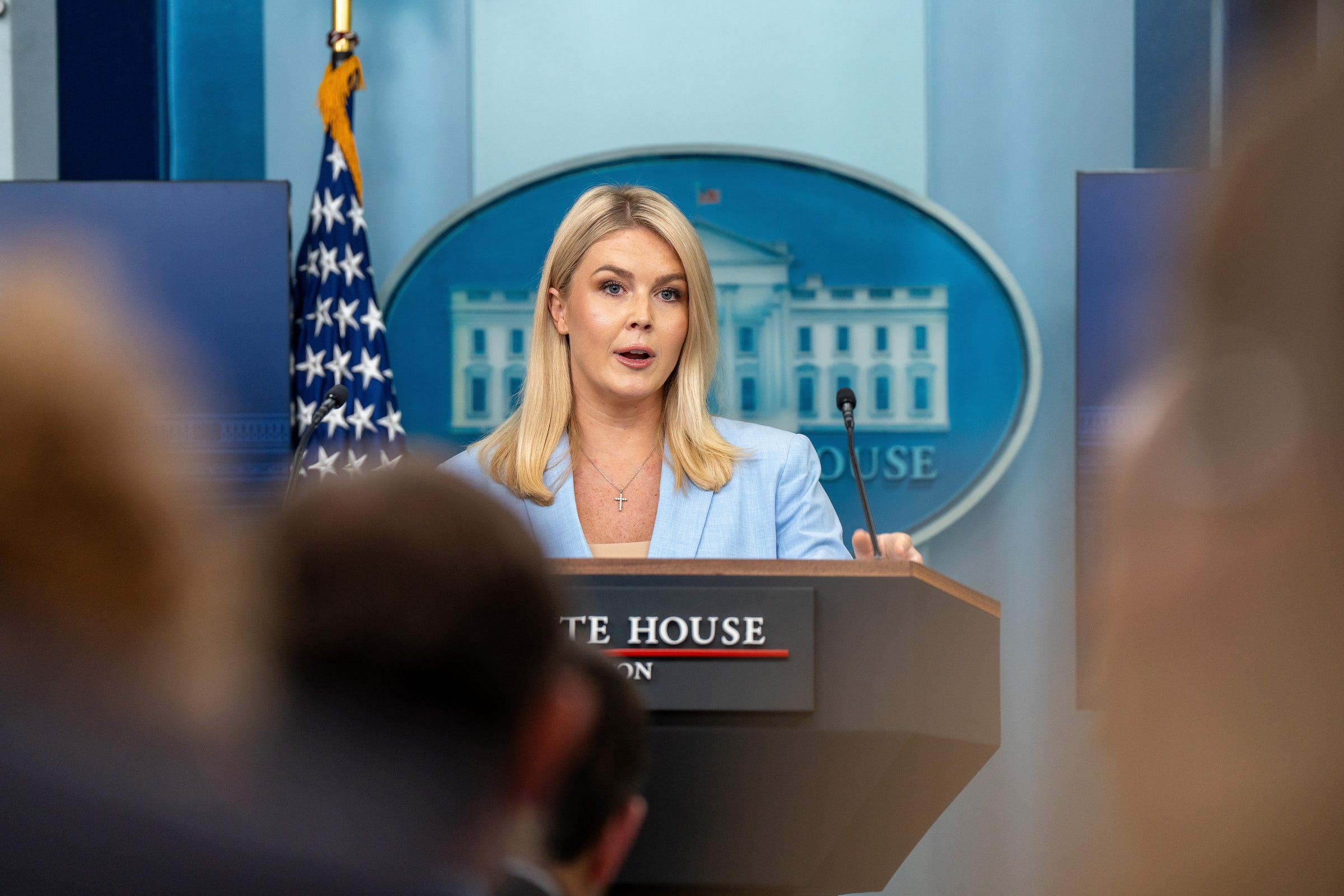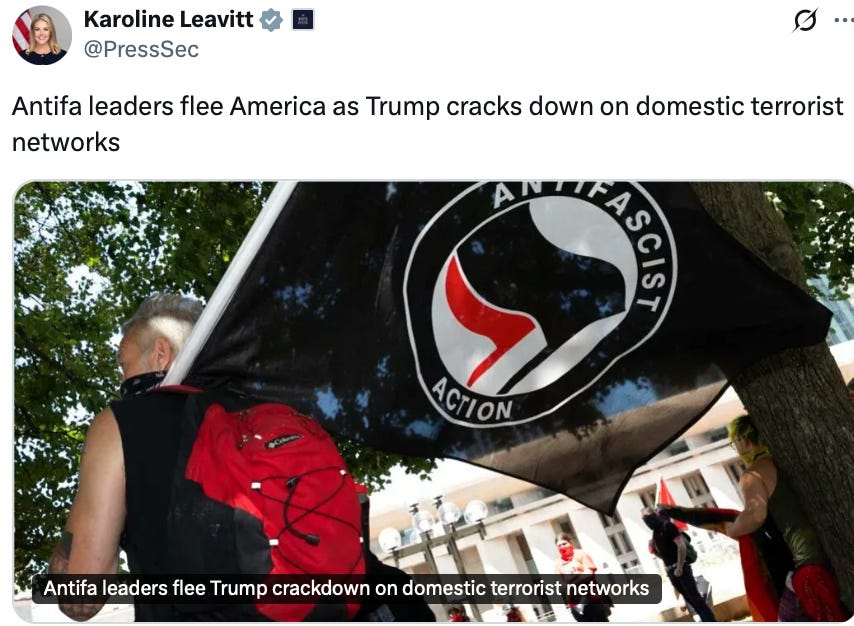My Investigation of Swedish Antifa Founder Cited by Trump Administration
The White House Press Secretary is now referencing my report on Antifa’s Swedish connections, following the global spread of the revelations from Varberg.
Viral Success: My Investigation Spreads Globally
My investigation into the Swedish founders of Rose City Antifa has now exploded in international reach. What began as an independent exposé from Varberg has, in just a few days, become one of the most talked-about reports on left-wing extremism in the Western world.
Shortly after publication, the material began circulating among U.S. security and extremism monitoring circles. The report has now reached millions of views, been translated into English, discussed in international security forums — and amplified by several prominent voices in the American public sphere.
The most notable breakthrough came when Andy Ngo, a well-known investigator of violent leftist movements, chose to highlight my investigation. Ngo himself has been attacked by left-wing extremists, lives under death threats, and has followed Rose City Antifa closely for years. He wrote the following:
“Violent Portland terrorist group Rose City Antifa was founded by Johan Victorin and Caroline Victorin (née Gauld). The two fled to Europe, and a Swedish independent journalist Christian Peterson has finally found them! They’ve been hiding in Varberg, Sweden!”
Ngo recently appeared in a panel discussion with Donald Trump, where several leading journalists discussed the systemic threat that left-wing extremism poses to the U.S. and the Western world.
The White House Reacts to My Investigation
When White House Press Secretary Karoline Leavitt recently commented on the growing trend of left-wing extremists fleeing the U.S. to avoid legal consequences, she referenced my report from Sweden as a clear example of this.
Legacy Media Refuses to Report
The fact that the White House is referring to a Swedish investigation marks a clear contrast to the silence of the Swedish media establishment. In a healthy media landscape, this would have sparked follow-up reports, party leader interviews, security policy analyses, and a public debate. Here at home? Not a word.
No questions from the public broadcast. No radio debates. No scrutiny into what Swedish citizens are doing after returning home from building a terror-designated violent organization.
The same journalists who are ready to scandalize a municipal politician over the wrong pronoun in an email go completely silent when the connections point left. This isn’t about lack of resources — it’s about ideological unwillingness.
The global attention proves that truth can break through — even without support from legacy media — as long as someone dares to publish it.
Christian Peterson






